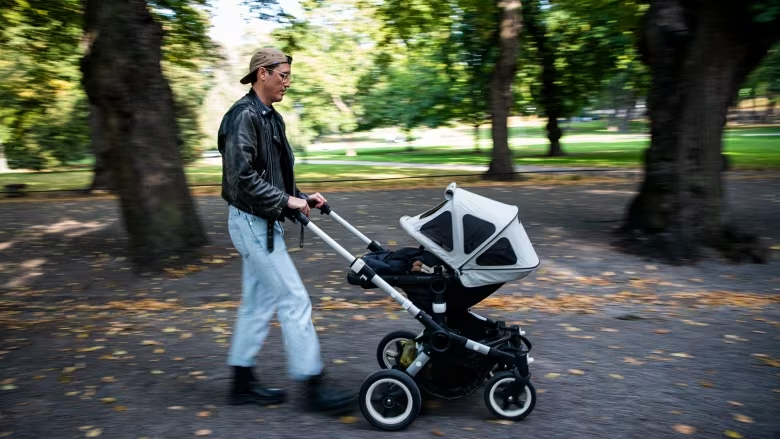
In a snapshot captured on September 24, 2020, in Stockholm, a man is seen pushing his baby in a stroller. Recent research reinforces the notion that men without children, rather than women, express a greater desire to become parents in the future.
In a societal narrative often dominated by portrayals of women as inherently maternal, recent research sheds light on a surprising revelation: it's childless men, not women, who express a stronger desire for parenthood. A Pew Research Center survey unveils a startling contrast: 21% of childless women aged 18-34 claim they never want children, compared to 15% of men. This narrative challenges long-standing assumptions, prompting reflection on societal expectations and gender roles.
Marina Adshade, an economics and gender specialist at the University of British Columbia, highlights the historical context of women's fight for reproductive rights, juxtaposing it against the significant burdens motherhood imposes. The Pew survey, while new, echoes longstanding trends, suggesting a shift in perceptions of parenthood.
Although the survey doesn't delve into specific reasons behind men's stronger desire for children, it dispels notions of parental pressure as a driving force. Experts emphasize the consistency of such trends across various studies, spanning decades. Factors such as COVID-19 and evolving societal norms contribute to nuanced shifts in fertility intentions.
Karen Lawson, a psychology professor, offers insights into the divergent perceptions of parenthood between genders, citing differing expectations regarding career disruption and caregiving responsibilities. Sara Studholme's personal experience challenges conventional norms, as she navigates her journey through motherhood, confronting societal expectations and personal desires.
Adshade underscores the enduring toll of motherhood, exacerbated by societal pressures and economic disparities, evident in the gender wage gap and the motherhood penalty. Despite the evolving roles of fathers in parenting, mothers continue to bear the brunt of household responsibilities, leading to emotional exhaustion and professional setbacks.
As discussions about parenthood evolve, the Pew survey serves as a poignant reminder of the complexity surrounding familial aspirations and societal expectations. The desire for parenthood transcends gender stereotypes, sparking conversations on individual agency and societal norms.















